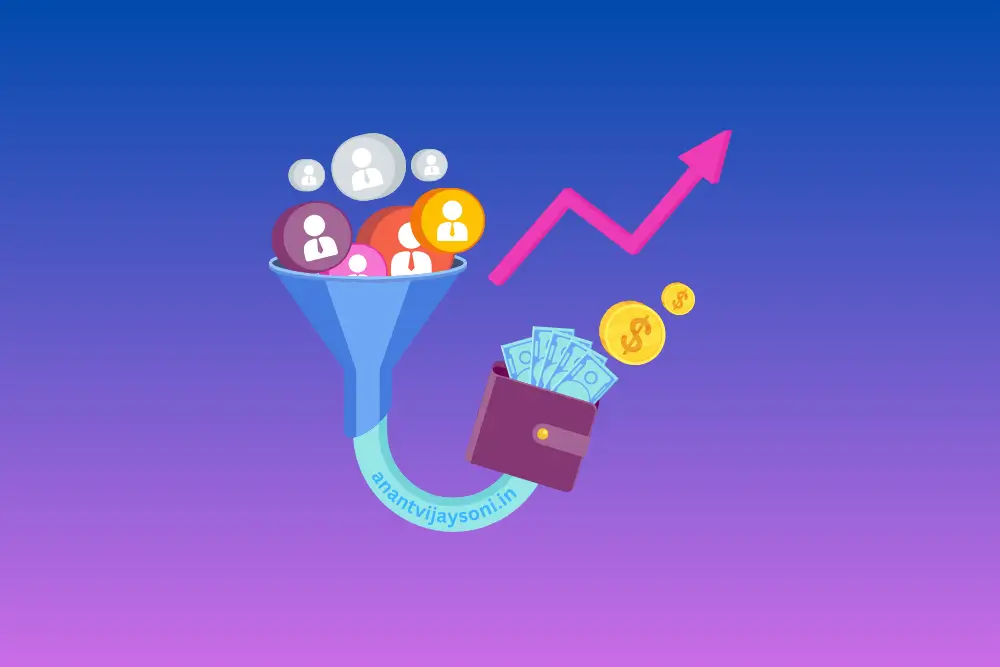In the ever-evolving landscape of digital marketing, Cost Per Action (CPA) has emerged as a powerful model for advertisers seeking measurable results. However, beneath the surface of clicks and conversions lies a complex interplay of human psychology that determines the success of CPA marketing campaigns.
Understanding the psychological aspects that influence conversions is crucial for marketers aiming to optimize their strategies and maximize returns.
In this article, we will delve into the depths of the psychology behind CPA conversions, offering actionable tips and tricks to master the art of persuasion. Additionally, we will introduce a valuable resource, “CPA Secrets,” to aid marketers in honing their skills and achieving unprecedented success in CPA marketing.
Psychology Behind CPA Conversions

- The Power of First Impressions:
In the digital realm, first impressions happen in milliseconds, and they profoundly impact the user's decision to engage with an offer. The psychological phenomenon known as the “halo effect” suggests that individuals tend to form an overall positive or negative impression based on their initial encounter with a website or advertisement. Marketers must optimize landing pages to create a positive halo effect by ensuring a clean design, clear value proposition, and compelling visuals. “CPA Secrets” emphasizes the significance of crafting a captivating first impression to enhance conversion rates.
- Neuroscience and Visual Appeal:
The human brain processes visual information faster than text, making the visual appeal a critical element in CPA marketing. Neuroscientific principles, such as the impact of colors, imagery, and design on emotional responses, play a crucial role. By aligning visual elements with the desired emotional response, marketers can create a persuasive environment that primes users for conversion. “CPA Secrets” delves into the neuroscience behind visual appeal, offering practical strategies for designing visually compelling campaigns.
- Understanding Cognitive Biases:
Human decision-making is often influenced by cognitive biases, inherent shortcuts the brain takes to simplify complex information processing. Marketers can leverage these biases to nudge users towards desired actions. For instance, the scarcity bias suggests that people place higher value on scarce resources. By incorporating scarcity elements in CPA campaigns, such as limited-time offers or exclusive deals, marketers can tap into this psychological principle to drive conversions. “CPA Secrets” provides comprehensive insights into various cognitive biases and offers practical strategies for integrating them into marketing initiatives.
- Social Proof and the Bandwagon Effect:
People are more likely to take action when they see others doing the same – a phenomenon known as the bandwagon effect. Social proof, in the form of testimonials, reviews, or user-generated content, can significantly influence the decision-making process. Marketers should strategically incorporate social proof in their CPA campaigns to build trust and credibility. “CPA Secrets” guides marketers on harnessing the power of social proof effectively, including tips on collecting and showcasing testimonials to enhance conversions.
- The Role of Emotions in Decision-Making:
Emotions play a pivotal role in shaping consumer behavior. Successful CPA marketing goes beyond presenting facts; it elicits an emotional response that compels users to take action. Whether it's excitement, fear of missing out (FOMO), or a sense of belonging, tapping into emotions can create a deeper connection with the audience. “CPA Secrets” offers a deep dive into the emotional triggers that drive conversions, providing marketers with actionable strategies to evoke specific emotions and influence decision-making.
- Building Trust and Credibility:
In an online landscape saturated with information, trust is a precious commodity. Establishing trust is fundamental to convincing users to complete a CPA action. Marketers should prioritize transparency, showcase credentials, and provide clear communication to foster trust. “CPA Secrets” emphasizes the importance of building a trustworthy brand image and offers practical tips on instilling confidence in potential customers.
- Personalization and Relevance:
Personalization is a cornerstone of effective marketing in the digital age. Tailoring messages and offers to match individual preferences enhances relevance and increases the likelihood of conversions. Marketers can leverage data to understand user behavior and deliver personalized experiences. “CPA Secrets” guides marketers on the nuances of personalization, offering insights into segmentation, dynamic content, and personalized recommendations for optimal CPA conversions.
- The Impact of Decision Fatigue:
As users navigate through the digital landscape, they encounter a barrage of choices. Decision fatigue sets in when individuals are overwhelmed by too many options, leading to indecision or abandonment of the decision-making process. Marketers can mitigate decision fatigue by simplifying choices and guiding users through a streamlined conversion process. “CPA Secrets” provides strategies to reduce decision fatigue, ensuring that the CPA conversion path is frictionless and user-friendly.
- Nurturing Relationships Through Remarketing:
Not all conversions happen on the first interaction. Remarketing is a powerful tool to re-engage users who showed initial interest but didn't convert. Understanding the psychology behind remarketing involves recognizing that users may need multiple touchpoints before making a decision. “CPA Secrets” offers insights into effective remarketing strategies, including audience segmentation, personalized messaging, and strategic ad placements to nurture relationships and maximize conversions over time.
Conclusion:
The psychology behind CPA conversions is a multifaceted puzzle that requires a deep understanding of human behavior and decision-making processes.
Marketers who master the art of persuasion can unlock unparalleled success in the competitive landscape of digital advertising. “CPA Secrets – CPA Marketing Courses” serves as a valuable resource, providing marketers with actionable tips, tricks, and comprehensive insights to elevate their CPA marketing strategies.
By incorporating the psychological principles discussed in this article and leveraging the expertise offered by “CPA Secrets,” marketers can navigate the intricate world of CPA conversions with confidence and finesse, achieving unprecedented results in their digital marketing endeavors.






